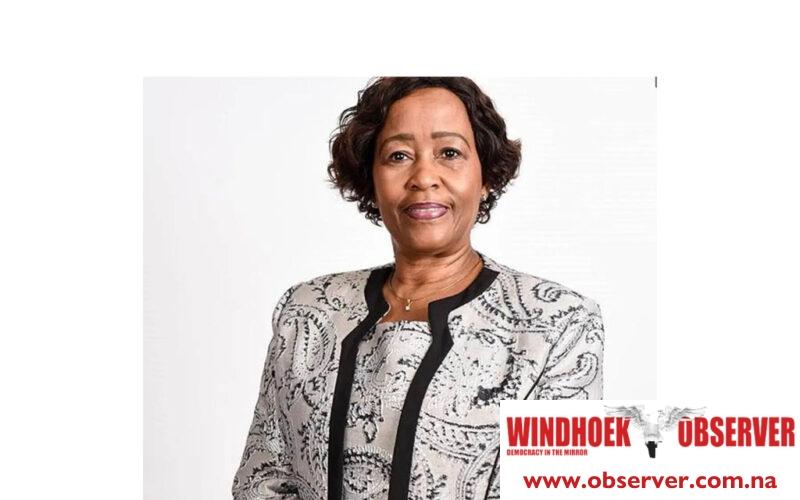Hertta-Maria Amutenja
Political analyst Ndumba Kamwanyah has cautioned that Inge Zaamwani’s strong administrative background may not be enough to manage the complex political and social issues within her new ministry.
Zaamwani was sworn in as a non-voting member of the National Assembly on Wednesday.
President Netumbo Nandi-Ndaitwah appointed her as the Minister of Agriculture, Fisheries, Water and Land Reform, replacing Mac Hengari.
“She has the background from the Ministry of Mines, and also when she was Namdeb’s Chief Executive Officer, it shows that she is experienced in terms of administration and technocratic matters,” Kamwanyah said.
“But the ministry that she was given is a beast ministry, in the sense that you have the element of agriculture, which is a beast in itself, and you have the fishery, which is also a beast in itself, and then you have water and land reform, which is also a beast in itself. Technocratic skills and experience alone will not be successful in navigating those three elements that make up that ministry, especially more in the particular issue of land, which is a very sensitive issue.”
He said land reform is highly political and needs a leader who understands both policy and public grievances.
“One also needs to be vested in politics and in community issues. That is the aspect that we need to bring in, because in particular, land is driven by politics. We need to combine both a well-vested self into community issues and the political processes, as well as use a technocratic background to implement the ministry,” he said.
Kamwanyah said Zaamwani will have to deal with ongoing issues in the agriculture sector, unresolved rural water problems, and land resettlement that has mostly benefited elites.
“We haven’t really done a lot to transform our agriculture sector. There has always been a slow process to implement. Water is an issue, more in particular in rural areas, especially in terms of water infrastructure. Land itself is very sensitive. We need to balance the politics that come with the land issues, whether for the landless people or the resettlement process that people figure out has only taken place at the elite level,” Kamwanyah said.
Human rights activist Rosa Namises said Zaamwani’s appointment must focus on long-standing issues in the ministry, especially food security and women’s role in agriculture.
“Her appointment brings in a new input into looking into old files that are already there. Agriculture is our food foundation, and women have been known for a long time to be working on land, producing, planting and harvesting. There are questions on food security, climate change in terms of agriculture,” Namises said.
She said rural communities still struggle with water supply, especially in areas where people were resettled without proper infrastructure.
“Water is a sacred thing for us. We know that the water point committees have had their challenges, and they have not been given the needed support to maintain water. Some communities have been resettled without proper water infrastructure.”
Namises said Zaamwani will also face high public expectations in the fisheries sector.
“There are already standing issues with fishermen. We must not forget what we have put in and what she has found in the ministry already. We want to see a woman who will be supported by those of us utilising those services,” she said.
Zaamwani began her career in 1984 as a project officer for the SWAPO Women’s Council in Lusaka.
She worked in the Ministry of Mines and Energy from 1995 to 1998. In 1999, she was appointed managing director of Namdeb and held the role until 2015.
She has served on various boards, including Air Namibia, First National Bank of Namibia Holdings, Extract Resources, Fishcor, NamGem, the Namibia Chamber of Commerce and Industry, and the UNAM Council.
Before her recent appointment, she was a special advisor to the President on constitutional affairs and private sector interface.
President Nandi-Ndaitwah believes that Zaamwani will unlock opportunities for value addition, job creation and food security in the sectors under her portfolio.




